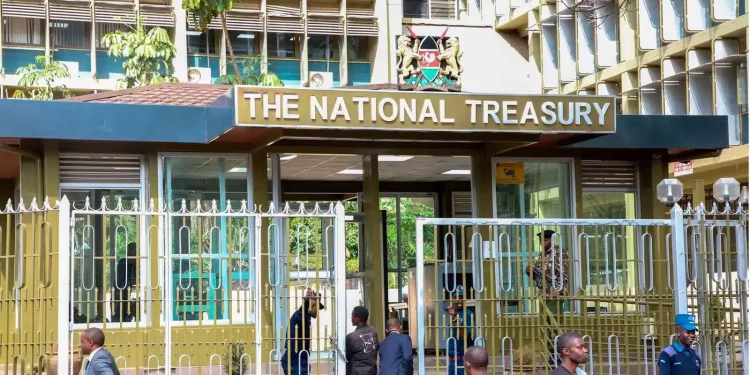The Kenyan Treasury has proposed a significant shift in the management of government bonds and treasury bills by assuming the Central Bank of Kenya’s (CBK) role in these operations. This reform is part of broader efforts to streamline debt operations and separate fiscal and monetary responsibilities.
Currently, the CBK serves as the government’s fiscal agent, issuing and managing treasury bills and bonds. However, under the new proposal, the Public Debt Management Office (PDMO) would take charge of administering government securities, including setting borrowing calendars and determining debt pricing.
The proposed changes aim to reduce interest rates on government securities below the current average of 11.0%, aligning with Treasury Cabinet Secretary (CS) Mbadi’s policy objectives. However, the proposal is expected to face resistance from the CBK, which plays a central role in managing Kenya’s monetary policy and public debt issuance.
According to the 2025 Medium Term Debt Management Strategy, the government emphasized the need for legislative amendments to empower the PDMO as the principal authority in the issuance of government securities. “Support for legal amendments to empower PDMO to perform its functions as Principal in issuance of Government securities,” the strategy document stated.
The Treasury has raised concerns about the lack of direct control over public debt auctions, arguing that this hinders its ability to be fully accountable. To address this, it has proposed consolidating auction functions under the PDMO, moving away from the current committee-based structure.
“Consolidate auction functions under PDMO as the Principal in domestic debt borrowing and not under a committee—to make PDMO more accountable in public debt issuance,” the Treasury noted in its proposal.
As of January 17, 2025, Kenya’s domestic debt stood at KSh 5.9 trillion, with treasury bonds making up 83.2% of the total and treasury bills accounting for 14.3%. The government has also signaled its intention to phase out 364-day treasury bills and introduce Kenyan Shilling-denominated bonds targeting offshore markets as part of its 2025 debt management strategy.
Under the current framework, while the Treasury determines the size of the debt, the CBK oversees the pricing of individual debt auctions in collaboration with the PDMO. According to the Treasury’s website, “The Central Bank of Kenya in its capacity as fiscal agent is assigned the function to administer the domestic public debt including issuance of, payment of a return on, and redemption of, Treasury bills and bonds and other securities of the government in close consultation with the Public Debt Management Office.”


















